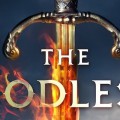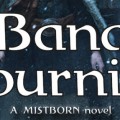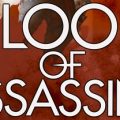Leviathan’s Blood is the second novel in the Children Trilogy from Ben Peek. With the first novel in the series setting out a complex and original world, Peek had his work cut out for him to keep up the quality and the pace the original set forth. The second installment comes with a mixture of good and bad – it builds further on an intriguing world but it does suffer from the ‘middle book’ syndrome. From start to finish, the novel feels like a set-up for an epic end to the trilogy, rather than a distinct and fully formed story in itself.
‘War is how faith is spread.’
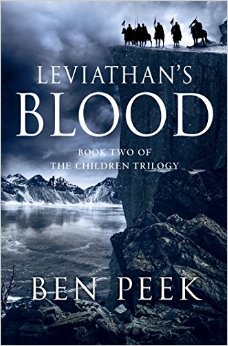 The ancient gods are dead and the new child god is a beacon of devastation. And her followers are growing in number.
The ancient gods are dead and the new child god is a beacon of devastation. And her followers are growing in number.
After the death of Keepers Fo and Bau in Mireea, the people of Mireea travel to Yeflam with Zaifyr as their nominal prisoner. Once there, instead of receiving the welcome they expected as refugees, they are confined to a small island. Meanwhile, Zaifyr pushes for a public trial where he can voice his concerns about the child god and pave the way for a new war. Now god-touched, Bueralan travels to his homeland with the soul of his blood brother tied to his neck.
‘Only in devastation is truth shown clearly to us.’
The first book in the Children Trilogy, The Godless, left a lasting impact on me. I found the construction of the world fascinating and very original, which is always a welcome aspect in fantasy novels. While they all attempt to carve out their own personality and realm, too often they retread ground we’ve already seen a thousand times.
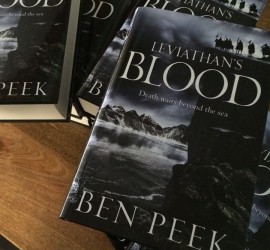 Through the ensemble cast, Peek is able to conjure not just a small area, but really create the feeling of a full and varied world. This continues into the second novel as more of the characters fan out, allowing the reader to explore new realms with their own politics and geographical features. But with this expansive world and spread of the characters comes a problem of focus. There are a lot of narrative threads being juggled at once, and the book becomes fragmented and hard to follow. Once we would start to get dug into one storyline, it would jump away – and by the time we came back, I had to re-orient myself with what had come before.
Through the ensemble cast, Peek is able to conjure not just a small area, but really create the feeling of a full and varied world. This continues into the second novel as more of the characters fan out, allowing the reader to explore new realms with their own politics and geographical features. But with this expansive world and spread of the characters comes a problem of focus. There are a lot of narrative threads being juggled at once, and the book becomes fragmented and hard to follow. Once we would start to get dug into one storyline, it would jump away – and by the time we came back, I had to re-orient myself with what had come before.
Perhaps this is an issue that only comes up if you are slotting in reading during your lunch break or the bus ride, and so on. If I’d had time to sit down and churn my way through the book in a long sitting, I might have found this less of an issue. But in this day and age, very few readers will have the luxury of time on their hands to read for hours on end.
‘Over the last two months, she had come to believe that every act of the Enclave was one that had to be an act of symbolism.’
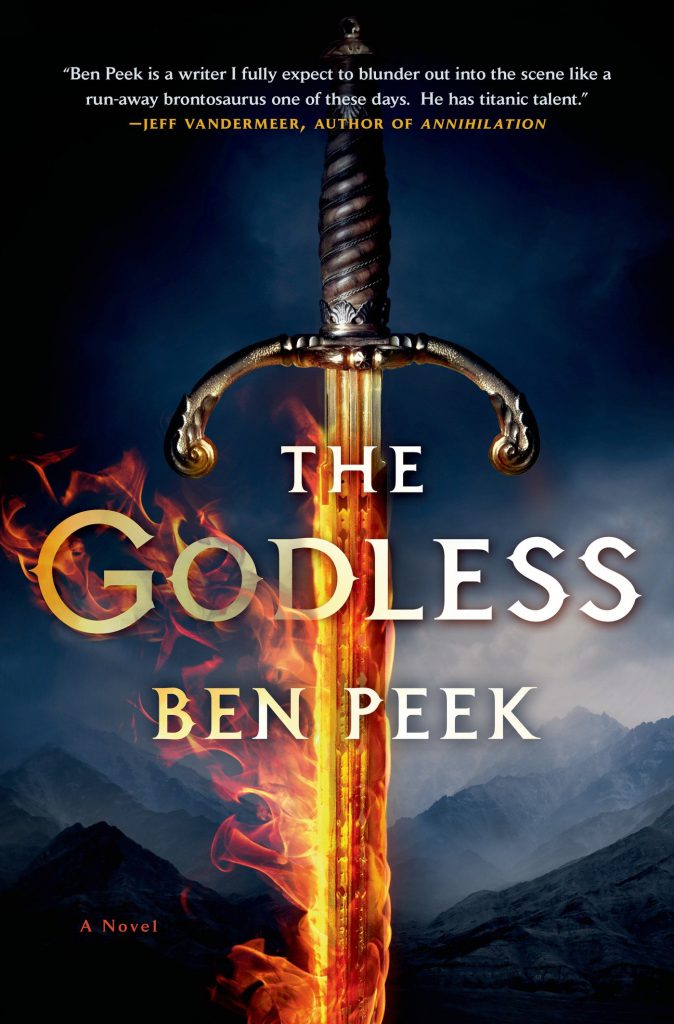 The book struggles with its status as the middle of a trilogy. The first book gave us an interesting and fairly complete narrative, centered in Mireea. But Leviathan’s Blood is fractured. The characters are spread out, as is the narrative thread. The main narrative driver is the trial – something that is built up for the first two-thirds of the novel only to be over in a blink of an eye, leaving us wondering why this had to happen as a trial at all – why didn’t Zaifyr simply lecture the city? Hold some kind of fantasy-world style press conference? It felt too contrived and a bit pointless once we got there.
The book struggles with its status as the middle of a trilogy. The first book gave us an interesting and fairly complete narrative, centered in Mireea. But Leviathan’s Blood is fractured. The characters are spread out, as is the narrative thread. The main narrative driver is the trial – something that is built up for the first two-thirds of the novel only to be over in a blink of an eye, leaving us wondering why this had to happen as a trial at all – why didn’t Zaifyr simply lecture the city? Hold some kind of fantasy-world style press conference? It felt too contrived and a bit pointless once we got there.
While the narrative struggles in this second installment, the themes present in The Godless are expertly carried through. Questions around religion and what makes a god, along with the pitfalls of religion (any religion) are almost constantly addressed. With these questions of religion come more wide-reaching queries to do with power. Should those who have power – from magical abilities, wealth, strategic importance – actually wield it? Even if they are trying to wield their power for good, someone always suffers. As such, the novel is rich and meaty for readers who love to chew over deep philosophical quandaries.
‘…a skinny boy no older than thirteen who had found the joys of masturbation, but not yet shaving.’
The prose is utterly readable, with some absolute gems (like the one above) popping out to be quotable as hell. The piece where Peek does fall down – and he is far from alone in this, especially amongst fantasy writers – is writing large chunks of expositional dialogue. There is so much to this world that the characters often break into explanations that would be completely unnatural for them within the confines of the world – everyone there already knows the information, it’s merely repeated for the benefit of the reader.
Verdict: A good read if you aren’t too worried about the middle book in a trilogy standing on its own two feet.
 Pop Verse Pop Culture Universe
Pop Verse Pop Culture Universe



